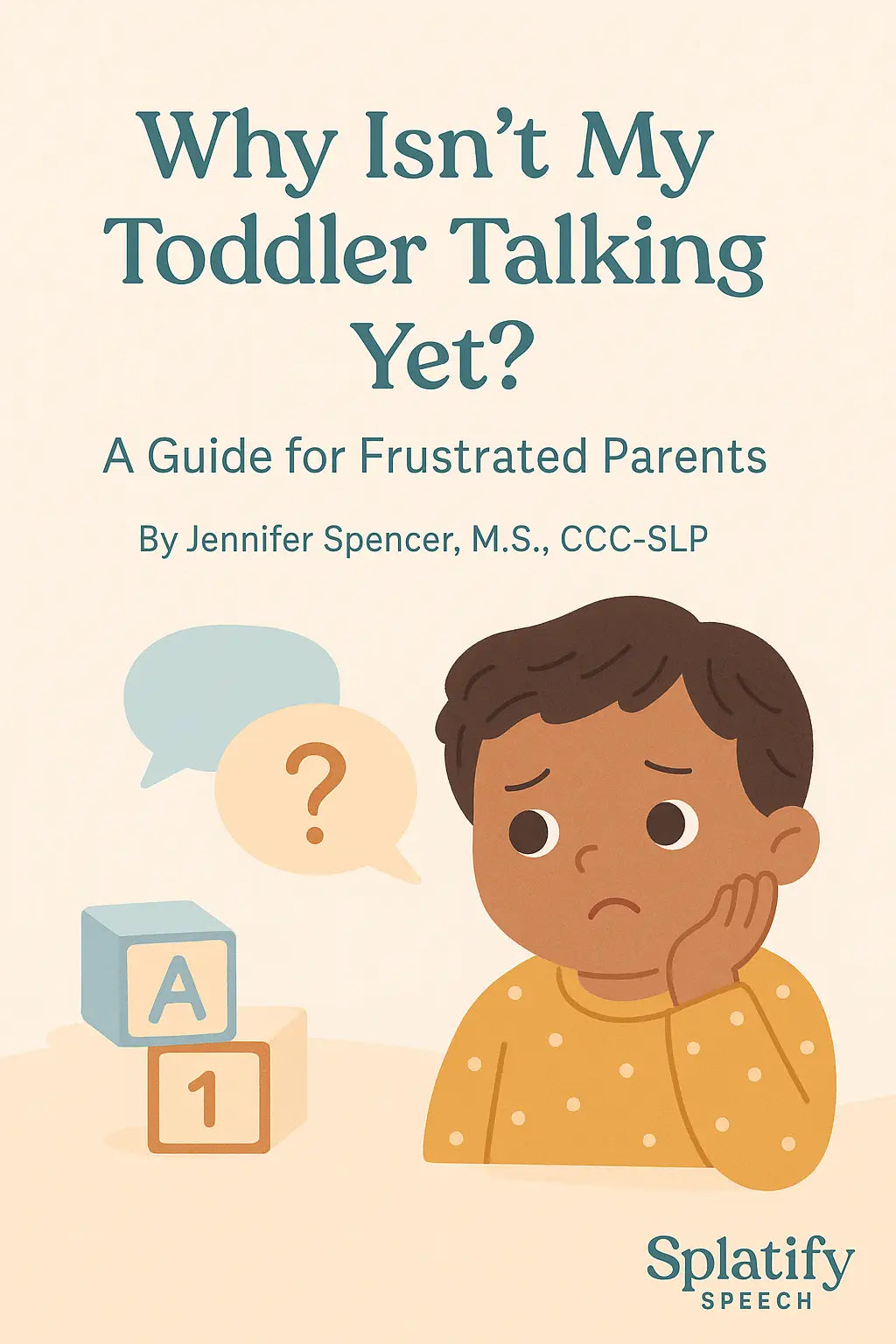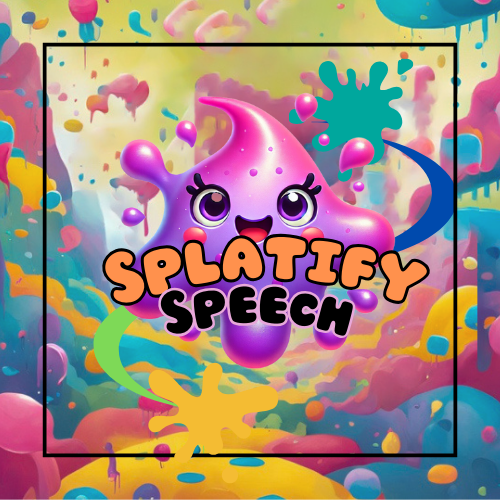
Why Isn’t My Toddler Talking Yet? A Guide for Frustrated Parents
Why Isn’t My Toddler Talking Yet? A Guide for Frustrated Parents
Written by Jennifer Spencer, M.S., CCC-SLP | Pediatric Speech-Language Pathologist & Creator of Splatify Speech
If your toddler isn’t talking yet, you're not alone—and you’re not failing.
As a pediatric speech-language pathologist, I hear this concern from parents all the time:
"My toddler isn’t talking yet. Should I be worried?"
It’s an honest, important question—and one that deserves a clear, expert answer. Let’s break it down together in a way that gives you peace of mind and a plan of action.
🧠 What’s “Typical” Speech Development in Toddlers?
While every child develops at their own pace, here are general speech and language milestones:
| Age | Typical Milestones |
|---|---|
| 12 months | Babbles with inflection, says 1–2 real words (like “mama” or “ball”) |
| 18 months | Uses 10–20 words, points to familiar objects, understands simple commands |
| 24 months | Uses 50+ words, combines 2 words (“want juice”), follows simple directions |
| 30–36 months | Says 200–500+ words, speaks in short sentences, understood by familiar listeners |
📌 Red flag: If your child is 18 months with no words, or 2 years old and not combining words, it’s a good idea to talk with a speech-language pathologist.
❗Possible Reasons Your Toddler Isn’t Talking Yet
There are many reasons a child may be delayed in speech. It’s not always something to panic about—but knowing the possibilities helps you act early and confidently.
1. Late Talker Profile
Some children are simply “late bloomers” with speech but otherwise developing normally. These kids may catch up on their own, but early intervention still helps. You will hear lots of people saying "wait and see," or "they'll talk when they're ready," but it is far better to be safe than sorry.
2. Hearing Issues
Even mild hearing loss (from chronic ear infections, or fluid or pressure build up, for example) can impact speech development. A hearing screening should be step #1.
3. Oral-Motor Challenges
If your child has trouble coordinating their lips, tongue, or jaw for speech, they may struggle to produce words clearly or consistently. Also, if they have any sort of lip or tongue tie, their speech could be affected.
4. Developmental Delays
Some children have broader developmental delays, such as in motor or cognitive skills, that also affect speech.
5. Autism Spectrum Disorder (ASD)
Speech delay can be an early sign of autism, especially if paired with limited eye contact, gestures, or social engagement. However, do not automatically think that your child has Autism simply because they may have a speech delay.
🚩 Signs That It’s Time to Get Help
Your toddler might benefit from a speech-language evaluation if you notice:
✅ No babbling by 12 months
✅ No words by 18 months
✅ No word combinations by 2 years
✅ Difficulty understanding directions
✅ Lack of eye contact or joint attention
✅ You, as the parent, feel in your gut that something isn’t right
Trust your instincts. You know your child best.
💬 What You Can Do Right Now
Even before seeing a specialist, here are a few ways to support your child’s speech development at home:
🗣️ Talk more—narrate everything.
Describe what you’re doing (“Mommy’s washing the cup”), what your child is doing, and what’s happening around them. Repetition helps.
📚 Read every day.
Choose simple, repetitive books (like Brown Bear, Brown Bear) and label pictures as you go.
✋ Pause with purpose.
During routines like snack time or play, pause before giving your child something to see if they’ll try to gesture, vocalize, or imitate.
🎵 Sing songs with hand motions.
Songs like “The Wheels on the Bus” pair movement with rhythm and are great for language building.
🧩 Limit passive screen time.
Interactive play and face-to-face time are far more valuable for speech than solo screen time.
🧑⚕️ When to See a Speech-Language Pathologist (SLP)
Early support makes a huge difference. If your child is showing signs of a delay, don’t wait. A speech evaluation is gentle, play-based, and parent-guided—nothing scary at all.
I created the Speech Success at Home to help you:
-
Understand your child’s speech needs
-
Get expert-approved strategies
-
Feel confident supporting speech at home
-
Know when and how to seek professional help
💛 Final Thoughts
Your child’s speech journey is unique, and progress can look different for every toddler. The most important thing you can do is stay informed, stay calm, and take the right steps early.
You're not failing. You're being proactive—and that matters more than you know.
